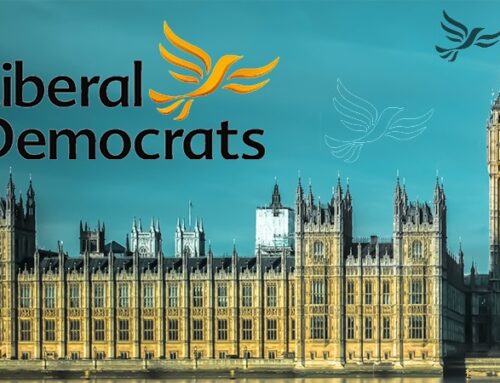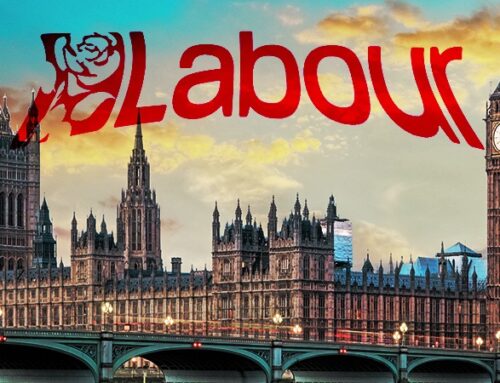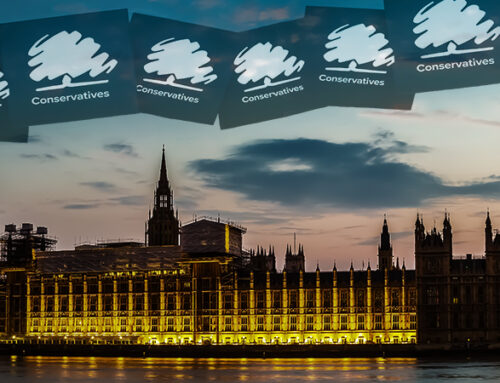I have frequently been critical of Ofgem in its regulation of the retail energy sector, advocating for the Financial Conduct Authority (“FCA”) to take over, so it has been deeply disappointing to see the extent to which the FCA has been asleep at the wheel over the Nigel Farage/Coutts debacle. Following hot on the heels of regulatory failures in the water sector, is it time to look at how we regulate the regulators and put in place formal oversight of these bodies?
Principles-based regulation only works if those princples are observed
I have bemoaned the lack of an equivalent to the FCA Principles within the energy sector, however, these Principles only have value if regulated businesses adhere to them, and the regulator enforces compliance. Our financial industry, despite years of regulatory pressure from the EU, continues to follow a broadly principles-based approach to regulation. This means it is not necessary to expressly forbid every type of action you wish to proscribe, but you can establish the principles you wish regulated firms to follow in order to behave appropriately.
Now, not only is the FCA under fire for its lax regulatory attitude – it has singularly failed to condemn the actions of Coutts in an unambiguous way (can you imagine Ofgem CEO Jonathan Brearley passing up this sort of opportunity to be at the forefront of “clamping down” on his own patch?) – it may now be subject of an investigation itself, potentially extending as far as its principles-based approach and the Principles themselves.
As someone who has been very involved in the topic of gender diversity in traditionally male industries and an active participant in events designed to encourage girls to consider careers in STEM areas, I obviously have strong views about the benefits of diversity in the workplace. However, despite disagreeing with a great deal of what Nigel Farage stands for, I have been horrified to read of his “de-banking” by Coutts and related stories about individuals being denied bank accounts on account of their own or their relatives’ political or social views. The children of little known Tory peers (less so peers of other affiliation) have also been denied bank accounts.
Coutts appears to have violated quite a few FCA Principles in its dealings with Farage.
- Integrity – lying both to Farage and apparently the press about the reasons for the account closures is not a shining example of acting with integrity. Discussing his situation with journalists is completely unacceptable, and the motivations for doing so must surely be questioned.
- Skill care and diligence – in all of its deliberations about whether or not to close Farage’s accounts, there does not appear to have been any consideration given as to whether the decision was consistent with the FCA Principles. There is a mention that Farage might complain it is “unfair” but since treating customers with fairness is one of those Principles, that point warranted wider consideration and not just a passing reference.
- Management and control – the requirement for a bank to organise its affairs responsibly and effectively creates an interesting question in this case – Coutts appears to have devoted considerable resources to its decision to close Farage’s accounts but did not consider compliance with the FCA Principles, or wider political risk with the situation sparking talk of urgent banking reform. The bank recognised its decision was likely to become public, but failed to properly consider the consequences of that.
- Market conduct – a firm must observe proper standards of market conduct. With politicians openly saying they think people making such decisions are not “fit and proper” one could argue that the actions were not consistent with proper market conduct.
- Customers’ interests: a firm must pay due regard to the interests of its customers and treat them fairly – is the denial of banking services for any reason other than criminality fair? Who determines which views should lead to an account closure? Coutts has had a lot of unsavoury clients in the past – Augusto Pinochet was OK, but Nigel Farage is not?
- Communications with clients are required to not be misleading – the information Coutts appears to have provided Farage in relation to his account closure looks to have been blatantly untrue, never mind mis-leading.
- Conflicts of interest – Coutts seems to have put its own political biases and preferences above its regulatory obligations and the interests of Farage as its customer. Coutts is also in part publicly owned, which means it is less entitled than a privately held business would be to choose to exclude certain customer groups, particularly those who are British citizens (the business being partly owned by the UK Government).
- Customers: relationships of trust – lying to customers and denying them services for spurious reasons, informing the press of the customer’s situation, and providing the press with mis-leading and potentially defamatory comments about the customer are completely inconsistent with a relationship of trust.
So that’s eight of the 11 FCA Principles Coutts appears to have violated, and it is rightly attracting wide-spread criticisms. It also appears to be in breach of GDPR – data regulations require (as the Information Commissioner has pointed out in relation to this issue) data minimisation – organisations are expected to collect the lowest amount of personal data necessary for the conduct of business. You could argue that trawling the internet for information about Farage in the way Coutts did was far in excess of what was necessary for the provision of banking services, particularly since his Politically Exposed Person status was being downgraded. And of course, the admission by Dame Alison Rose that she leaked information about Farage to a BBC reporter is a significant violation of data protection rules.
“Banks need to hold a lot of information about customers, to properly run their accounts, and to uphold the law around aspects like money laundering. But data protection rules still apply… Banks should not be holding inaccurate information, they should not be using information in a way that is unduly unexpected, and they should not be holding any more information than is necessary,”
– John Edwards, Information Commissioner
We should all be grateful to Nigel Farage for making this so public – the denial of banking services absent criminal or abusive behaviours is unacceptable, as it is almost impossible to participate in today’s society without a bank account. An energy supplier would not be allowed to disconnect a customer simply because they disagree with their political views – murderers, rapists and child molesters are all entitled to receive gas and electricity. This is probably a good moment to recognise banking as an essential service like gas, electricity and water, and make the withdrawal of banking services as difficult if not more so.
Coutts is clearly regretting its treatment of Farage. Dame Alison Rose has publicly apologised, resigned, and initiated a review and offered Farage alternative accounts at NatWest. Coutts chief executive Peter Flavel has also resigned and there is pressure for NatWest Chairman, Sir Howard Davies, ironically former head of the FCA’s predecessor the Financial Services Authority, to follow suit. That the NatWest board announced its full confidence in Rose without consulting its largest shareholder – the Government – speaks volumes. I agree that Davies should have known better and needs to go.
“I recognise that in my conversations with Simon Jack of the BBC, I made a serious error of judgment in discussing Mr Farage’s relationship with the bank… I was wrong to respond to any question raised by the BBC about this case,”
– Dame Alison Rose, in her resignation as CEO of NatWest
The banking group is reportedly now being inundated with subject access requests by those whose accounts have been closed – a Facebook group with more than ten thousand members is sharing tips on how to do it. So not only has this been a reputational nightmare, the bank will now potentially be buried in un-necessary additional admin, which carries penalties if not completed on time.
And of course, Farage is likely to use the Ombudsman Service and the courts unless NatWest adequately compensates him for his trouble, and restores not only his own access to bank accounts, but also those of his businesses, and relatives whose accounts have also been closed. He has also set up a website with the aim of determining the extent of what he calls the “de-banking” problem and has seen that many small businesses that rely heavily on cash are finding their accounts closed as banks try to move away from the use of cash, ostensibly due to money laundering regulations, but more likely because it is cheaper to service electronic rather than cash banking. The Government is considering extending the recently changed rules on closure of individuals’ accounts to small businesses.
What are businesses for and how should they be regulated?
There is a worthwhile lesson for the banking sector in this debacle: the FCA Principles are there for a reason. They provide a guide-rope for proper behaviours and a barrier against improper behaviours. Had Coutts examined its treatment of Farage through the lens of the Principles it likely would have come to a different conclusion about its desired course of action. But there are also wider lessons about the purpose of businesses.
I was challenged on BBC Radio last week (again) about energy company profits and asked to respond to the posturing of various politicians. My conclusion was that they are largely mis-understanding the point of businesses – this is to make money for their shareholders. Of course, this must be done within the law, but the drift in recent years to demonstrate some different purpose around social welfare is misguided since there are no uniquely identifiable criteria for what those might be. NatWest Group no doubt wishes to be an inclusive organisation, but in pursuit of that inclusivity, it tried to “de-bank” a person with whose views it disagreed, a move which is actually the polar opposite of inclusion.
Tomorrow BP will publish its results, and I have been booked to discuss them on BBC Radio. In the prep call, the producer asked whether I agreed energy companies have a moral obligation to help consumers with the cost of living crisis. But how would this work in practice? BP doesn’t sell gas or electricity to households. It is also a FTSE-100 company whose shares are widely held by pension funds, so any move to use its profits to “help” people would mean reducing the income of British pensioners.
In 2022, only 7% of BP’s revenues were earned in the UK (13% in 2021), so how reasonable is it for the company to “do something” about the cost of living crisis in the UK? Who would decide what the appropriate action would be? Why should it help consumers in the UK rather than those elsewhere, where the bulk of its revenues are earned? Should we also ask companies like Saudi Aramco or Exxon to “do something” for British consumers? Is wealth re-distribution not purely the role of governments?
Back to banking, the FCA seems to have misjudged the situation. Its initial reaction was that banks and other businesses can choose their customers. This is not universally true, for example, energy suppliers cannot disconnect households except in limited circumstances set out in their licences. Network operators similarly are not allowed to discriminate between those to whom it will or will not offer a grid connection. The Government is likely to impose similar restrictions on banks, since a bank account is a necessity in the modern world – arguably, the regulator should have already come to this conclusion, since unlike the Government, it spends 100% of its time thinking about the financial services sector.
“For banks as well as other commercial enterprises, it’s fundamentally up to them to choose who they do business with… I’m not aware of anything in the FCA rulebook that goes to the point around how banks judge their own attitude to reputational risk, if that’s what it comes down to,”
– Ashely Alder, Chairman, FCA
In this particular case, the business in question, NatWest, is 39% owned by the taxpayer, so arguments about choosing their customers are even less acceptable. Some people hold views with which we disagree. Some of those views are distasteful. But freedom of speech is a basic human right – it is not the job of a bank or any other type of company to decide to police thought or speech – with few exceptions (a printing company might legitimately decline an order to print neo-Nazi material for example, but such material is not necessary for daily life – having a bank account is). Banking executives behaving in a fit and proper way would realise this, and not try to do it.
Do we need better regulation of regulators?
There are calls for a review into the FCA itself now, as well as Coutts/NatWest. But with high profile regulatory failures within other regulated industries, notably water and energy, in recent years, perhaps this is the time for a wider review of the UK’s approach to regulation. One thing is clear, there is no room for complacency. Regulators need to be constantly alert to the next crisis, whether that is due to a lack of resilience, fraud or other malpractice, or the consequences of weak controls.
I am a firm believer in principles-based regulation – it avoids the need to anticipate and document every possible scenario and discourages businesses from scouring the rule-book for loopholes. But a principles-based approach only works if both the regulator and the firms it regulates put those principles at the heart of their activities, and in this regard, both the FCA and the banks appear to be failing.
The energy sector does not follow a principles-based approach, with Ofgem being keen to portray itself as a “watchdog”, “clamping down” on this, that or the other, but the result, particularly in the retail sector, is a stagnant market which serves neither customers nor companies well. There are few new entrants these days, little innovation and low levels of customer satisfaction, while profits continue to be low and regulatory burdens high. I will address the recent supplier “profits” in an upcoming post (spoiler: they are not true profits, just a timing difference).
Perhaps it’s time for Parliament, to whom these regulators are notionally answerable, to put in place a formal oversight mechanism that is consistent across the regulators, and not left to individual select committees as and when they get round to it. The Coutts/Farage debacle provides the perfect opportunity for this – I encourage the Government to take it.






Kathryn,
You say that the primary concern of a business is to make money for it’s shareholders. I wish to take issue with this view.
There is no point in a business making money if it doesn’t provide the goods and services it is supposed to provide.
I would suggest that the purpose of a business is to provide the goods and services it is designed to do whilst also making enough money to satisfy the requirements of its shareholders.
The failures of the water companies is a case in point.
In a properly functioning market, a company which failed to provide the goods and services it is supposed to provide would fail. Therefore in order to make money for shareholders, it must carry out its functions well or lose customers.
Water companies failed because regulators set the cost of debt lower than the cost of equity, encouraging them to lever up and pay the cash so raised to shareholders. Water companies are monopolies so the market does not punish them for poor performance, which is why they need to be regulated. But that does not alter their primary objective which is to make money for shareholders.
Lest we forget on top of all the internal failing of NatWest, the CEO indulged in gross misconduct, was caught, tried to fend it off and then was forced to resign.
It is indicative of the complete failure of Ofcom, Ofwat, Ofgem and most instruments of governance, with the Financial Conduct Authority at the apex.
We will lose little by scrapping all of these bodies.
They are not doing a real job, so let’s cut the expense.
The problem is, we cannot do away with regulation. Regulators have an important function to carry out – we just need to make sure they do their jobs properly. The Farage issue is unusual in that there has been no wide-spread economic collapse which has led to the curent navel-gazing, but it presents an opportunity to address regulatory failures more broadly.
Regulation and Oversight is a core failing to varying degrees across all aspects of British Society which is often addressed by holding expensive public enquiries which cost a fortune take years to produce a 500 page glossy report which a minister will wave about at a photo shoot and tell us lessons will be learnt which they wont.
Quis custodiet ipsos custodes? As valid a question today as when Juvenal proposed it. There is sadly no evidence that civil service departments and their ministers are equipped to do so: indeed, they have failed. Likewise Parliament seems to end up being shocked! shocked! by the regulatory failures they have legislated and the low quality of management they have endorsed. In any event, they do not have the power: a headline I saw while searching for something earlier today was “BEIS brushes off Select Committee criticisms of OFGEM”. The sad thing is that the Select Committee really only scratched the surface because its members lacked the expertise to ask the most penetrating questions and press for proper answers, aside from being keen to promote their individual green credentials over doing a proper job.
The most pointed and pertinent criticisms come from outside those spheres: people with some knowledge of the industries concerned gained through practical experience. In the banking case, Farage has requisite background of being subjected to City regulators, and the big advantage that he has a public platform and the presentational skills to hit home with his criticisms. Some of us wave flags in front of regulators, civil servants and individual MPs by responding to consultations and writing to them. However, in the words of Don Maclean “They do not listen: they’re not listening still – perhaps they never will.” although there are a handful of honourable exceptions.
Publicity is key. Explain a forthcoming problem and how to solve it to an MP in a public forum, and when that problem starts to materialise chances are good that they will have a public Damascene conversion to the light provided earlier. The difficulty is that few expose themselves in that way. The role of the press and TV in providing a forum for discussion and enlightenment has been emasculated by lowering the quality of debate and the promotion of low (and inaccurate) information journalism, and by partisan polarisation of their output, providing the excuse to those in charge to ignore it because it does not chime with their view, rather than because it is wrong. Even in parts of the specialist press that cater to corporates with subscriptions starting at $2,000 a head seem to lack the experienced hands of old. Voices with real competence and exposure are rare. That is why your media contributions are so valuable. They do more to encourage a rethink than almost anything else – even if neither of us managed to persuade Rathi to do anything about OFGEM’s flawed attitudes to risk management.
KBO.
“ Perhaps it’s time for Parliament, to whom these regulators are notionally answerable, to put in place a formal oversight mechanism that is consistent across the regulators, and not left to individual select committees as and when they get round to it.”
Parliament deliberately uses unelected and unremovable regulators, and other quangos, to deliver unpopular policies and regulations that they want to implement but wish to hide from the public and for which they pretend they are not responsible.
When you wrote before about the FCA taking over from Ofgem, Kathryn, it made me give a wry smile. The FCA was useless under Bailey and continues to be so under its current leadership. You are correct that we cannot do away with regulation but we can do away with regulators, which are a relatively recent phenomenon.
Like so much else that is going wrong in Britain today, the rot started in the Blair years. His brilliant idea was to create all these arms-length bodies, quangos and “independent” regulators so that the Government could take the credit when things went well but the blame could be deflected onto the regulators when things went wrong. It worked to start with, because Blair was very popular in his first term, but it fails now. The Government still gets the blame for the dire state of the NHS, for example, even though NHS England runs the show and the DHSC has minimal influence – as a bewildering sequence of bewildered Health Secretaries have discovered in recent years.
The fundamental flaw is lack of accountability. Bailey is a total disaster at the Bank but I cannot cast a vote in any forum to express my desire to remove him from office. As you have reported, the head of Ofgem gets a roasting from a Parliamentary committee but is still in post. Ministers won’t sack him because they are frightened of being seen to interfere with independent regulators but independent of whom? All these arms-length bodies may be independent of accountability to the Government, and therefore independent of any obligation to the electorate, but they all seem to have been captured by one world view or another. See the EHRC as a prime example.
The only was out of this mess is to bring these regulatory responsibilities back into the relevant government departments, where they once sat quite happily. It will be painful, of course, and politicians will shy away from their responsibilities, but at least democratic accountability will be restored.
The EHRC is interesting as it seems the Board has been dis-enfranchised by operational staff. Something similar happened at Ofgem where Board decisions were countermanded by executives.
A lot of this comes down to governance. Having the proper governance structures in place. I sit on the boards of a couple of small charities, and in one case, I am constantly having to remind my fellow directors about GDPR and the obligation under charities law to only spend our funds in line with our charitable objectives. These two issues come up time and time again.
Various industry bodies, such as the CISI of which I am a Chartered Fellow, require members to undertake a certain amount of CPD each year. But there is no obligation on either company directors or members of regulatory boards to have any formal training for their positions, or to engage in CPD. I think it should be mandatory for company directors and charity trustees to undergo training and receive certification that they are qualified for these roles. That they understand their statutory duties under the Companies Act and Charities Act. There should be similar training for people sitting on the boards of regulators – in the case of the FCA, they should have passed the FCA exams in addition to formal training on wider governance issues.
The problem with bringing regulators back under ministerial control is the risk of politicisation. This happens to a certain extent now, but would be more the case if regulation came directly from Government. It would also run the risk of dramatic changes of direction after elections. But there are three things we need to change with the current system:
1. Ensure the boards of regulators are suitably qualified and required to engage with CPD to ensure their knowledge is kept up to date
2. Ensure boards are accountable to Parliament through the creation of an oversight body, with regular reporting requirements including opportunities for regulated entities to provide their feedback
3. Ensure regulators are appropriately staffed and staff pay is high enough to ensure staff have suitable levels of competence. In finance this is particularly a problem as people can earn so much more money working for a regulated firm it means regulators are left with people who lacked the ambition or ability to secure a higher paying role elsewhere.
Regulation is one of those areas where you get what you pay for. But that money needs to be spent smartly. As far as possible we should return to a purer form of principles-based regulation and work to ensure that those princples are embedded in decision-making at all levels of both the regulator and regulated entities.